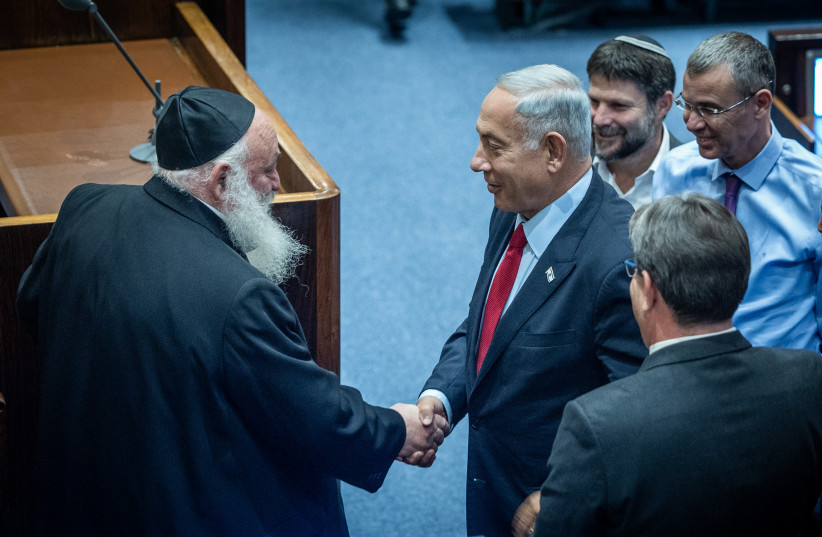Tension in the coalition between the haredi parties and Prime Minister Benjamin Netanyahu continued on Thursday after United Torah Judaism’s Jerusalem and Tradition Minister Meir Porush criticized him earlier this week over his inability to fulfill promises laid out in the coalition agreements between UTJ and the Likud.
In an interview in the Mishpacha newspaper, associated with the Hasidic Agudat Yisrael faction in UTJ, party chairman and Housing Minister Yizhak Goldkopf said that Netanyahu had received “unequivocal information” that the faction’s spiritual leadership council of rabbis ruled that if a haredi (ultra-Orthodox) conscription law does not pass by the time the budget passes on May 29, Agudat Yisrael will leave the government.
According to the coalition agreements between the Likud and UTJ, the issue of haredi conscription needed to be resolved by the time the budget passed. The current bill is set to expire on July 31. Two haredi factions – Shas and the Lithuanian Degel Hatorah (which makes up the second half of United Torah Judaism) – concurred that it was not realistic to pass such a bill by May 29, but Agudat Yisrael has not yet given up this demand.
Shas demands passage of Deri Law
Shas also criticized the government on Thursday, after publicly refraining from doing so until now. In an article in the party-affiliated newspaper Haderech, Shas spokesperson and secretary Asher Medina criticized the government for not acting immediately to go through with the “Deri Law,” which would enable party chairman Arye Deri to return to his former positions as Health and Interior Minister.
Netanyahu removed Deri after the High Court of Justice ruled in January that the appointment was “extremely unreasonable,” due both to his criminal history and to his misleading the court in his last conviction in January 2022, when he said he would not return to politics and received a lenient plea bargain.

Deri’s “nefarious removal” was an “open wound gushing blood” that “will not cease until he is returned to his position,” Medina wrote, adding that in a “fair and correct world where justice is a beacon,” the Deri Law should have been the first bill to be put on the Knesset floor in the summer session that began on Sunday, and Shas’s Knesset members should have announced that they would not participate in votes in the plenum until it passes.
The comments by Goldknopf and Medina came a day after a sharp exchange occurred between Netanyahu and Otzma Yehudit chairman National Security Minister Itamar Ben-Gvir, which led to Ben-Gvir announcing that his party will boycott Knesset votes until he is given substantial influence over the state’s national security policy.
